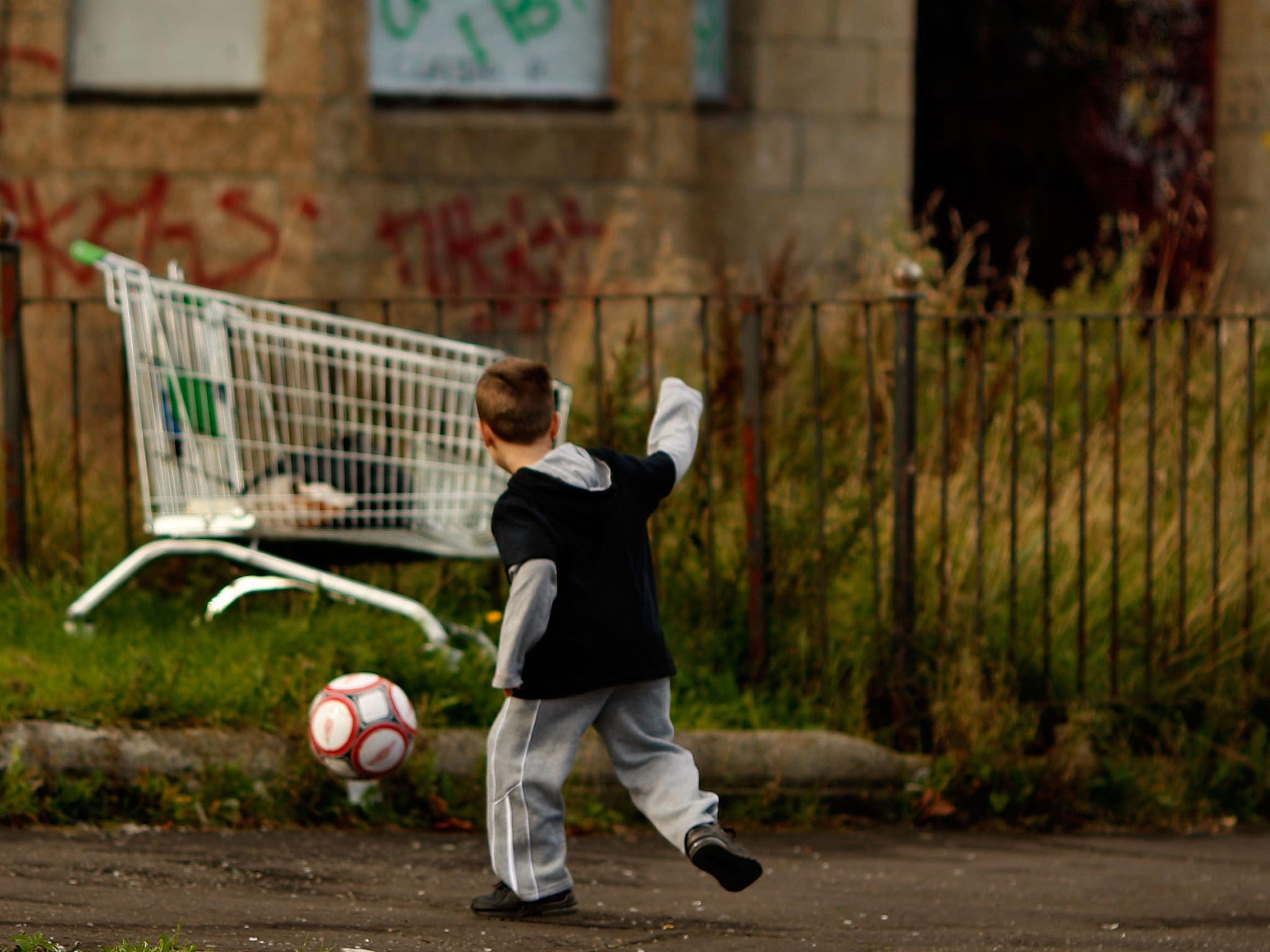'Beyond Whitehall farce': MPs and children's charities condemn Iain Duncan Smith's long-awaited child poverty announcement

Your support helps us to tell the story
From reproductive rights to climate change to Big Tech, The Independent is on the ground when the story is developing. Whether it's investigating the financials of Elon Musk's pro-Trump PAC or producing our latest documentary, 'The A Word', which shines a light on the American women fighting for reproductive rights, we know how important it is to parse out the facts from the messaging.
At such a critical moment in US history, we need reporters on the ground. Your donation allows us to keep sending journalists to speak to both sides of the story.
The Independent is trusted by Americans across the entire political spectrum. And unlike many other quality news outlets, we choose not to lock Americans out of our reporting and analysis with paywalls. We believe quality journalism should be available to everyone, paid for by those who can afford it.
Your support makes all the difference.The Government was accused of having no strategy to combat child poverty after Iain Duncan Smith was forced to drop his plans to bring in a new set of targets to tackle the problem.
The Work and Pensions Secretary suffered a big setback as the Chancellor George Osborne scuppered his move to widen the traditional definition of poverty – households below 60 per cent of average income. The Treasury argued that measuring those in severe poverty would provoke claims that the Government was “moving the goalposts” to massage the official figures.
Charities and pressure groups expressed anger that a long-running government review produced a threadbare strategy document, which recycled previous announcements such as reducing domestic energy bills by £50 a year. Gillian Guy, chief executive of Citizens Advice, said: “A four-year process which produces nothing concrete is unacceptable. The struggle of millions of people to make ends meet should have spurred ministers into urgent action, not slowed their response to a snail's pace."
Alan Milburn, chairman of the Commission on Social Mobility and Child Poverty, said the document was “beyond Whitehall farce” and a “serious missed opportunity.” He pointed out that the number of children in relative income poverty, currently 2.3 million, was forecast to rise and that the Government would miss “by a country mile” the statutory target of abolishing child poverty by 2020.
Although Mr Duncan Smith will press on with his attempt to include the root causes of poverty in the definition, ministers admitted privately there is no chance of agreement with the Treasury before next year’s general election.
The Liberal Democrats had backed the Conservative Work and Pensions Secretary in his battle with the Chancellor and will now put the proposals they agreed with him in their own election manifesto. In addition to income, the revised figures would also measure the gap between the GCSE grades of children on free school meals and other pupils and take account of worklessness, low parental qualifications and having three or more children among families in “entrenched poverty” for a year or more.
David Laws, the Lib Dem Schools Minister, said: “I am disappointed, frustrated and angry at the Conservatives’ refusal to sign up to a new suite of child poverty targets. I am not clear what Conservative policy now is… I don't think it is sensible after we have been in government not to have policies on these matters.”
Mr Laws suggested that the Chancellor’s plans for another £12bn of welfare cuts after the general election were behind his opposition to wider anti-poverty targets.
Mr Duncan Smith insisted: “At the heart of our welfare reforms is the commitment to transform the lives of the poorest and most disadvantaged in our society. Central to our approach is the conviction that it is not enough only to tackle the symptoms of poverty without also tackling the underlying causes.”
He said the new strategy “restates our commitment to tackling poverty at its source – be it worklessness, family breakdown, educational failure, addiction, or debt. These are the problems that blight the lives of vulnerable families and the strategy draws together the action we are taking on all these fronts."
However, Matthew Reed, chief executive of The Children's Society, said: "The Government's continued commitment to ending child poverty is welcome. But its strategy has no new ideas on how to make this a reality. It falls far short of what is needed to prevent a significant increase in the number of children living in poverty by 2020.”
Neera Sharma, assistant director of research and policy at Barnardo's, said: "With over five million UK children set to grow up poor by 2020, we need major surgery to tackle poverty, not the sticking-plaster solutions offered by the Government.”
Subscribe to Independent Premium to bookmark this article
Want to bookmark your favourite articles and stories to read or reference later? Start your Independent Premium subscription today.
Join our commenting forum
Join thought-provoking conversations, follow other Independent readers and see their replies
Comments